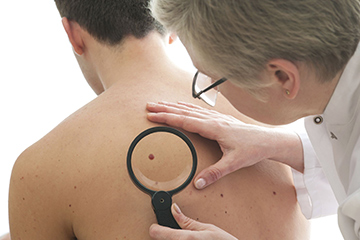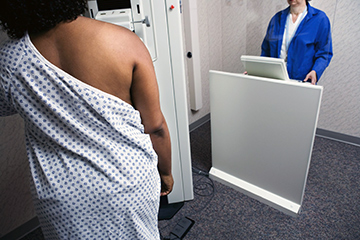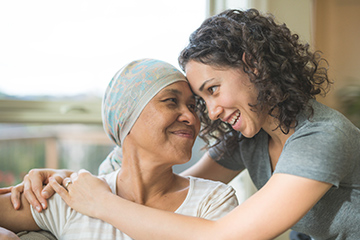World Cancer Day 2018
(Western Cape Government)
Cancer has taken more lives than AIDS, TB and malaria combined but although these stats can be scary, there is hope.
Being well-informed about cancer could save your life, or the life of a loved one.
This year on 4 February, World Cancer Day will be observed with the message “We can. I can” with the aim to inspire healthy cities and communities to fight cancer, according to Elize Joubert, CANSA’s CEO.
“We recognise the vital role that schools, libraries, health clinics, service groups, sports clubs and education professionals play in promoting and educating the next generation about their health and well-being. World Cancer Day is an opportunity for teachers, librarians, students, health practitioners and parents to learn more, raise awareness, take action and engage in this critically important health issue. We invite communities across the world on 4 February to support the forward progress in the fight against cancer,” she said.
Tygerberg hospital treats 50% of cancer patients in the Western Cape while the rest are treated privately. According to Dr Zainab Mohamed, Head of Oncology at Groote Schuur Hospital, the oncology department saw 3049 new cancer patients in 2017 - a 4% increase on the previous year.
Although lung cancer is the most frequent cancer worldwide, breast cancer is by far the most common cancer treated at Groote Schuur Hospital and comprised 20% of all new cancers seen in 2017 said Dr Mohamed.

When it comes to cancer prevention, early detection is key.
Warning signs for adult cancer
These are some of the early signs you may experience as an adult if you have cancer:
- Change in bowel movements.
- Unusual discharge or abnormal bleeding.
- Sores that don’t heal.
- A lump in the breast or testicle or anywhere else on your body.
- Change in size , colour and shape of a wart, mole or mouth sore.
- Noticeable weight loss.
- Loss of appetite.
- Chronic pain.
- Continued fever.
- Persistent indigestion.
These symptoms can be caused by other health problems as well. If one or more of these symptoms persist, consult a doctor immediately.
Warning signs for child cancer
These are some of the early signs you may detect your child under 15 have cancer.
- Pallor, bruising or bleeding, general bone pain.
- Lumps or swelling – especially if painless and without fever or other signs of infection.
- Unexplained weight loss or fever, persistent cough or shortness of breath, sweating at night.
- Eye changes – white pupil, new-onset squint, visual loss, bruising or swelling around the eye(s).
- Abdominal swelling.
- Limb or bone pain, swelling without trauma or signs of infection.
- Headaches, especially if unusually persistent or severe, vomiting.
- Fatigue, lethargy and changes in behaviour, such as being withdrawn.
- Dizziness, loss of balance or coordination.
If you have any concerns about your child showing symptoms, seek medical advice immediately. Download the childhood cancer signs and symptoms poster.

Cancer that affects the breast, skin, colon, rectum, mouth and cervix need to be treated in their early stages, according to the World Health Organisation (WHO), as this could eliminate the progression of the cancer.
We advise a screening as soon as possible if you think you or someone you know may be at risk of getting cancer. A screening is a simple test that's done to identify the disease.
Mammograms (X-rays taken of the breast to identify cancerous lumps) and pap smears (where cells are scraped from the womb to check for cervical cancer), are examples of cancer screenings.
Know your body
Knowing your body could help you properly identify possible early warning signs of cancer.
Any unexplained changes in your body should be reported to a doctor immediately, especially if you have a history of cancer in your family.
Regular self-examinations and healthy lifestyle habits could also minimise your risk of getting cancer.
Leading cancer risk factors
We can prevent cancer by adopting a healthy lifestyle. The leading cancer risk factors include:
- Tobacco
- Alcohol
- Environmental
- Unhealthy diet
- Physical inactivity
- Cancer-causing infections
The World Cancer Research Fund reported that being overweight and obesity are strongly linked with an increased risk of bowel, breast, uterine, ovarian, pancreatic, oesophagus, kidney, and gallbladder cancers later in life.
 A third of common types of cancer can be prevented by maintaining a healthy diet, maintaining a healthy weight and being physically active.
A third of common types of cancer can be prevented by maintaining a healthy diet, maintaining a healthy weight and being physically active.
How to adopt a healthy lifestyle and reduce the risk of cancer
- Stay physically active.
- Maintain a healthy weight.
- Limit your intake of salt.
- Reduce your sugar intake.
- Eat 5 portions of fruit daily.
- Don’t use tobacco products.
- Avoid alcohol.
- Protect your skin.
- Read product labels and make informed choices.
- Know your family history and risks.
- Go for regular screenings.
The Western Cape Department of Health offers extensive cancer support, from early detection to diagnosis, at the following public health centres:
Some initial cancer examinations and surgeries are also conducted at the following facilities:

Changing perceptions
We can challenge perceptions by improving our knowledge of cancer, counter misinformation so that we can reduce the negative stigma attached to those living with cancer in our communities.
Workplaces, community groups, healthcare providers and schools can all take action to improve communication about cancer, shifting perceptions and strengthening support for people affected by cancer.
Follow on Twitter: #WeCanICan
#WorldCancerDay


